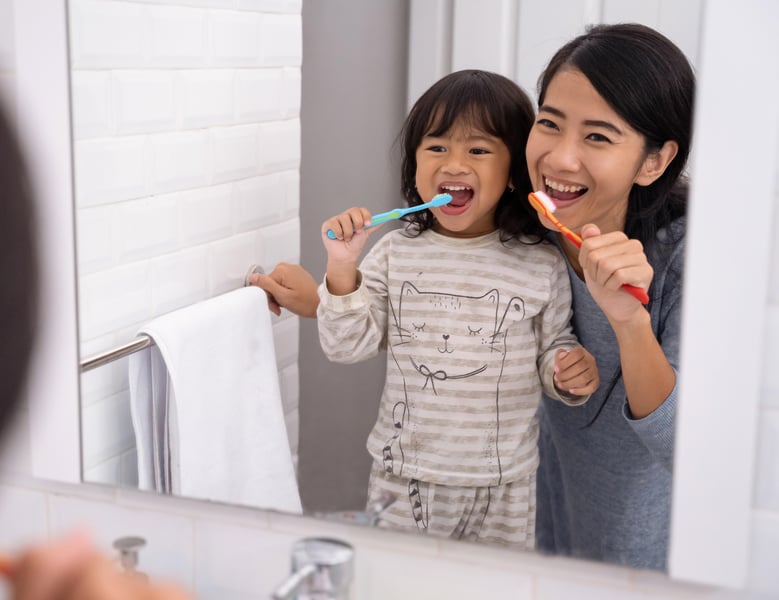Recursos del Paciente
Manténgase sano!
The 'Oreo Test' and Other Ways to Help Kids' Oral Health
- February 1, 2022
- Dennis Thompson
- HealthDay Reporter

Worried your kid isn't brushing his or her teeth properly? You might want to try the Oreo test.
"If the child eats an Oreo and brushes their teeth and the parent can still see the Oreos, they need to be checking and helping them brush," said Elise Sarvas, a clinical associate professor of pediatric dentistry with the University of Minnesota.
Sarvas offers up the Oreo test and other ideas for good oral health in recognition of National Children's Dental Health Month in February.
"The mouth is an integral part of the body," Sarvas said. "For children, having good oral health lays the groundwork for many important milestones: getting adequate nutrition to grow healthy bodies, having teeth to learn how to pronounce syllables correctly, holding space for the developing jaws and establishing self-esteem at a critical period of self-development."
To maintain a healthy mouth, parents should make sure kids are choosing healthy snacks, getting adequate fluoride and drinking lots of water, Sarvas said.
Water not only hydrates kids but makes their teeth stronger and offers a healthier option than juice or soda, Sarvas said.
"The American Academy of Pediatrics recommends that kids shouldn't drink more than 4 ounces of juice per day, and the average juice box is 6 ounces," Sarvas said, adding that good snack options include "fresh fruits and vegetables, deli meat and cheeses."
When it comes to cleaning your teeth, parents shouldn't underestimate how hard brushing teeth can be for kids who are still developing motor skills, Sarvas said.
"I used to say that children need supervision until they can write their name in cursive, but now that kids don't get taught that anymore, I say until they can tie their shoes on their own, which demonstrates good motor control," Sarvas said. "We all look forward to the independence that comes with growing -- it's great for kids to start brushing on their own, but always have a parent go back and check for any missed spots."
Sarvas says the best toothbrush for any kid is the one they'll actually use, but added that softer bristles are better for oral health.
"Soft bristles conform more easily to the many grooves in teeth and prevent the gums from wearing away," Sarvas said.
Not all children like the feeling of an electric toothbrush, so Sarvas would only recommend one only if you're certain your child will tolerate it.
"What's most important is to brush your child's teeth at least twice per day with toothpaste that contains fluoride. There are many different flavors on the market now, so find one that your child likes best," Sarvas said.
Finally, parents should bring their kid on their inaugural trip to the dentist's office following what Sarvas calls the child's "dental age one" -- either their first tooth or their first birthday.
"This allows us ample time to counsel the family, check on growth and development and provide general education," Sarvas said. "You also want to establish a dental home for kids so if there are concerns later on, families know where to go outside of the emergency department, which can't always help, and may be very costly."
More information
The American Dental Association has more tips for children's oral health.
SOURCE: Elise Sarvas, DDS, MSD, MPH, clinical associate professor of pediatric dentistry, University of Minnesota

